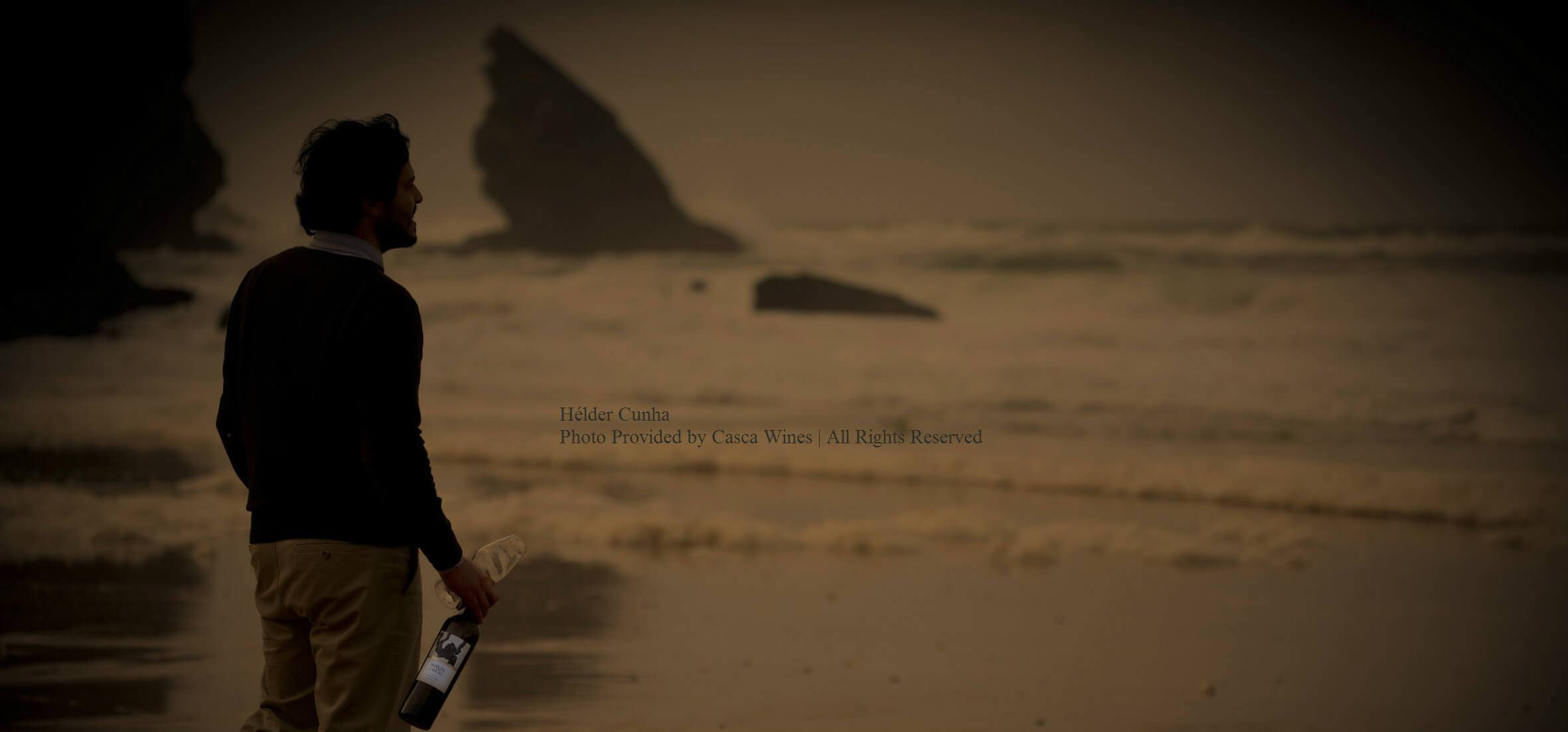Text Sarah Ahmed
Winemaker Helder Cunha and actor José Fidalgo criss-crossed Portugal by motorbike for the TV programme Rotas do Vinho (wine roads). Rotas which, with no vineyards and no winery, Cunha has come to know well. For he is one of Portugal’s new breed of roving winemakers-cum-grape marauders whose mission is, quite simply, to seek out the best grapes, wherever they might be. As long as the grapes are Portuguese it matters not if the region is fashionable and, for this, I take my hat off to Cunha.
At Casca Wines, which he co-founded with winemaker Frederico Gomes, wines are made in partnership with local growers and wineries in no less than ten DOC regions.
I am particularly enamoured of Casa Wines’ Monte Cascas Single Vineyard and Icon range, especially the quirkier wines from Colares and Tejo whose aged vineyards might just as well be described as national heirlooms. Where he laments “Portugal let its wine culture run through its fingers,” Cunha’s objective is to preserve them and renew Portugal’s unique tradition in winemaking. Here is what he had to say on this important topic, after which you’ll find my notes on Monte Cascas’ Single Vineyard and Icon range.
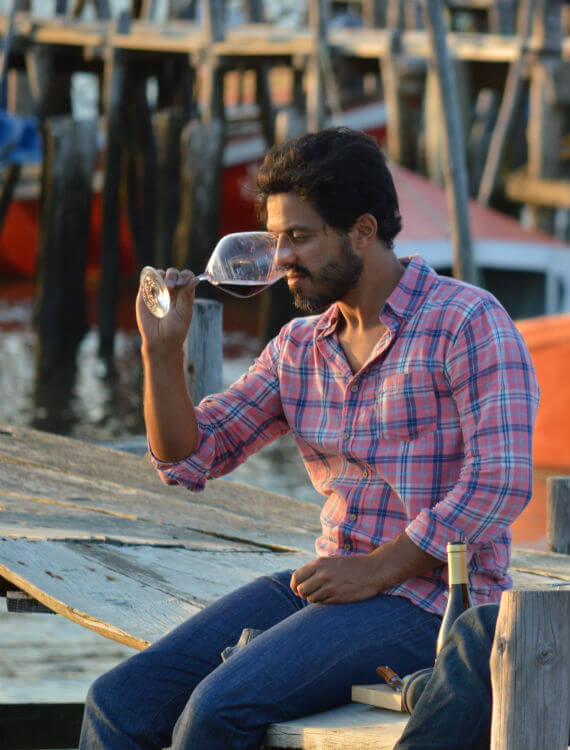
Hélder Cunha – Photo Provided by Casca Wines | All Rights Reserved
The interview
1. Portugal’s glory days – its Age of Discovery – are long gone yet, with no vineyards of your own, you are injecting the restless spirit of Vasco da Gama into the Monte Cascas multi-sourced portfolio. Tell me why you love to hit the road.
Going back to the old days, re-discovering the treasures of the country. I believe that Portugal is still an excellent wine producer. We have richness in varieties and terroirs which are unique in the wine world. Before I established Casca Wines I had the sense that Portuguese wines offer a rare tasting experience. I felt that with a modern approach to traditional production we could deliver an exquisite new taste to the world of wine. Before co-operatives were established 60 years ago, the vineyards were planted to produce quality and not just quantity. I love to hit the road because it is still possible to discover the vineyards before those times.
2. X marks the spot: What and where, in your opinion, are the best grapes in the country and why?
Some years ago I believed that quality came from a certain area/region. Nowadays as we are producing in 10 different DOCs I believe that quality comes from the love you give to your work. The best grape growers are the ones who love their vineyard and that is easy to see and feel! Our challenge today is to achieve greatness in the different DOCs.
However it is a fact that it is easier to grow perfect grapes in terroirs which have a neutral to basic soil, a cooler yet dry climate with varietals which have more acidity. We must remember that Portugal is a hot country and the proximity to the Atlantic and altitude help to achieve a greater balance in the grapes [and so wines]
3. An Australian winemaker recently described their older more hard-pressed vines as “skinny old guys” because, initially, their wines are a little lean and need time in barrel to reveal their grace and evenness – hardly an on trend quality in our fast consuming society. You’ve made it your business to seek out skinny old guys – what’s the attraction for a young guy like you?
The balance that an older vine can deliver helps to show the best of its region. The “skinny old guys” are like our grandparents for whom experience brought balance. I agree with the Australian winemaker, these wines need time to achieve grace, so the only way to show them in this fast consuming society is to share them by opening a bottle and to explain their origin and what’s expected in the coming years. One of our first private clients who appreciated that we were doing something special just wrote to us asking for our first vintage of Malvasia de Colares because he has three cases but wants to buy more for ageing.
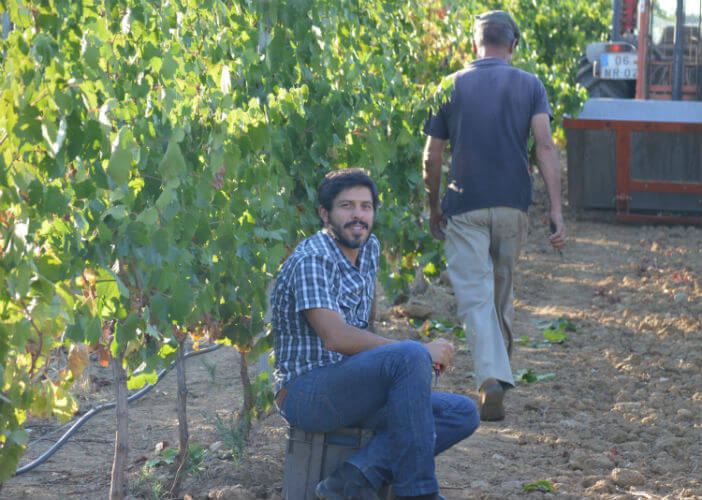
Hélder Cunha – Photo Provided by Casca Wines | All Rights Reserved
4. Has working with the skinny old guys paid off? Take Fernão Pires, a workhorse variety which typically makes cheap volume wines. Is it difficult to challenge perceptions of this grape even if it comes from 100 year old vines?
Yes, very difficult! Still, our export clients who have little knowledge about Fernão Pires simply didn’t care that the grape is used for cheap wines. They just looked at the quality. This helped to convince the Portuguese public and, today, our Fernão Pires is known to ”connoisseurs”.
5. Is it hard to track down and source grapes from such venerable old vineyards or are they overlooked, neglected and all too available?
It is harder now than when we started. These vineyards are neglected and European Union grants for the re-structuring of vineyards have wiped out a lot of the “treasures” that existed. Also the price of the grapes that growers are paid doesn’t reflect the quality you can get from old vineyards, so a grape grower simply wipes them out and plants a new one. Portalegre, for sure one of the best areas to produce a true Alentejo wine, is a good example. Nowadays it is very hard to find a very old vineyard with a viable quantity of grapes because most of them were abandoned when the co-operative went into decline.
6. Do you have any plans to settle down and a buy your own vineyards or will you always be a rolling (terroirist) stone?
Yes, one day I will have my own vineyards, but this doesn’t mean I will stop being a rolling terroirist.
The tasting
Casca Wines Monte Cascas Colares Malvasia 2011 (Colares)
Malvasia de Colares is unique to the Colares region. And not very much of it exists. The grapes for this wine – all 36 cases of it, were sourced from two 80+ year old vineyards a stone’s throw (c. one kilometre) from the Atlantic on – surprise, surprise – sandy soils (called Chão de Areia) over harder Chão Rijo soils formed of brownish limestone. It’s a very complex wine, round and textural but fresh, with hints of mushroom and bosky salt marsh and brine to its intensely stony, mineral palate. Unique. 11.5%
Monte Cascas Vinha da Padilha Fernão Pires 2010 (Tejo DOC)
Fernão Pires is planted in abundance in Tejo where it might be said of this variety familiarity breeds contempt. Not so with this wine. It comes from an exceptionally aged bush vine vineyard (over 100 years old) in Almeirim and is located on grey alluvial clay soil. Harvested in the fourth week of October when, no doubt, the grapes were super-ripe the resulting antique gold wine is rich and off dry, with 6.2g/l residual sugar. However it remains well balanced with beautifully integrated gently rolling acidity to its chamomile-edged peach kernel, quince, waxy apricot and dried pear fruit. Long and silkily creamy in the mouth this is a sensual wine over which to linger. It was fermented in 100% French oak (old barrels) where it is aged for 12 months. 54 cases produced. 12%
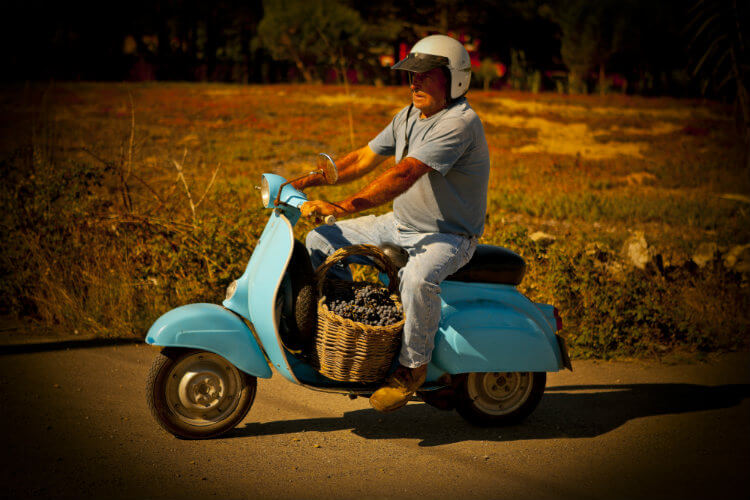
Transporting Ramsico Grapes for Monte Cascas Colares Red – Photo Provided by Casca Wines | All Rights Reserved
Casca Wines Monte Cascas Colares Ramisco 2009 (Colares)
Ramisco is also unique to Colares whose sandy soils famously protected this red grape from the ravages of phylloxera. Betraying its “skinny old guys” roots (it is sourced from the same vineyards as the Malvasia de Colares), this wine has opened up since I last tasted it in 2012. An appetising nose puts me in mind of beetroot and fresh grated horseradish – lip-smacking and piquant. It shows crunchy, vivid wild bilberry and red fruits – pomegranate and riper scented red cherry and raspberry. A lingering finish reveals delicious mushroom/truffle undertones. Though leaner and firmer, it would appeal to lovers of Pinot Noir. 11%
Monte Cascas Vinha da Carpanha 2010 (DOC Dão)
Sourced from a 56 year old low yielding (2t/ha) vineyard in Penalva do Castelo at 526m on granitic soils with slate and clay this is a deep purple, opaque blend of 65% Touriga Nacional and 35% Jaen. Dark spices – liquorice and clove – and mocha oak mingle with sweeter bergamot, dried pine needles and juicy, well-defined black berry and cherry fruit. Though the tannins are fine-grained and the whole very polished this well structured, dark, brooding style needs time to unravel and shrug off its rather over-enthusiastic new oak (it spent 24 months in new French oak) to show at its best. Cunha didn’t disagree with my take on the oak and, for subsequent Dão and Douro single vineyard vintages, believes that the oak is better balanced. 14.5%
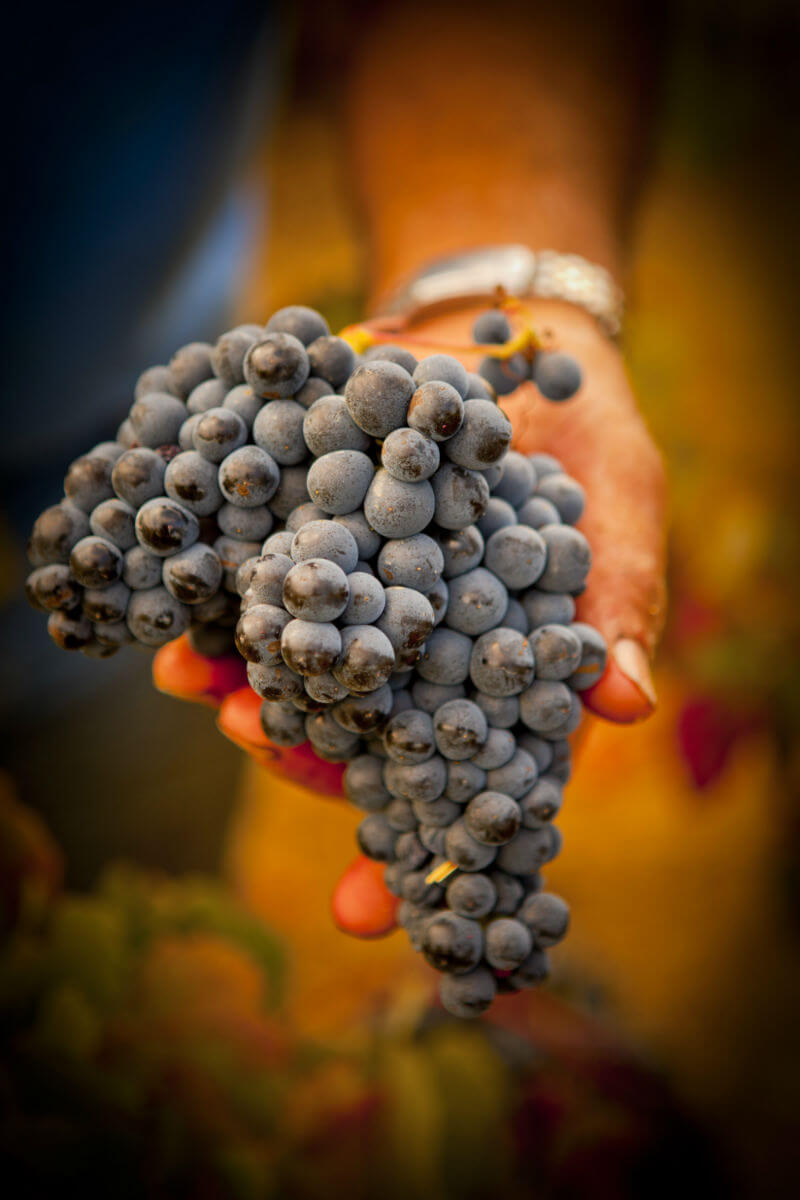
Grapes – Photo Provided by Casca Wines | All Rights Reserved
Monte Cascas Vinha do Vale 2009 (DOC Douro)
Sourced from a stone terraced 94 year old low yielding (1t/ha) traditional bush “em taça” field blend vineyard with more than 20 different grape varieties at 110m in the Torto Valley. The grapes were partially de-stemmed (30% stems) and crushed directly to a lagares and following fermentation the wine was aged for 24 months in French new oak barrels. In this warm, very dry vintage it is a deep aubergine hue with a quite forward balsamic nose with baked plum and black fruits. In the mouth it’s fresher with an attractive minerality and juiciness to its spicy, eucalypt-edged black berry and currant fruit so it’s a little less baked on the palate than the nose. Still, more forward than I’d expect. 14.5%
Monte Cascas Vinha das Cardosas 2010 (DOC Bairrada)
From a high density low yielding (2 ton/ha) vineyard which was planted in 1914 on calcacareous soils in Cordinhã. With traditional bush “em taça” Baga vines with a smattering of Maria Gomes (3%) & Bical (1%), it underwent a suitably traditional ferment in lagares with 30% stems. A tightly coiled, firm nose and palate has a green pine needle edge (30% stems) to its juicy but very precise, intensely concentrated damson fruit which means it mops up the (not so traditional) new French oak in which it was aged for 24 months with ease. A chassis of fine grained tannins and very persistent but well integrated acidity carry a long, taut finish. Youthfully austere Baga which I’d hold back for at least five years before sneaking another peek. Very promising. 13%
Contacts
Casca Wines, Lda.
DNA Cascais – Ninho de Empresas.
Cruz da Popa
2645 – 449 Alcabideche – Cascais, Portugal
Tel.: (+351) 212 414 078
Email: info@cascawines.pt
Site: www.cascawines.pt
Facebook: www.facebook.com/pages/Casca-Wines
Facebook: www.facebook.com/monte.cascas



